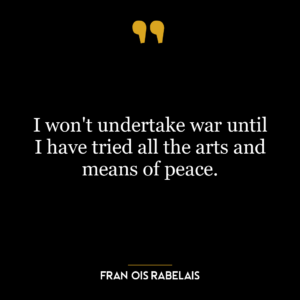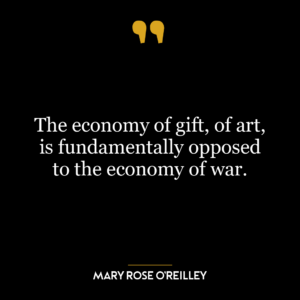This quote underscores the harsh realities of war, highlighting its destructive nature not only for those who are defeated, but also for the general populace. The first part of the quote, “War is cruel to the people,” speaks to the universal suffering that war inflicts on all involved, regardless of which side they are on. It emphasizes the human cost of war, including loss of life, displacement, economic hardship, and psychological trauma.
The second part, “and terrible to the conquered,” focuses on the specific plight of the defeated. It points to the additional burdens they bear, such as loss of sovereignty, imposition of foreign rule, cultural erosion, and often punitive reparations. This part of the quote underscores the power dynamics in war, where the victors impose their will on the vanquished, often with devastating consequences.
In today’s world, this quote is still relevant. Conflicts around the globe result in loss of life, displacement of people, and destruction of infrastructure. The suffering is not limited to the battlefield but extends to civilian populations who bear the brunt of the violence and instability. Moreover, the conquered people often face long-term consequences, such as economic exploitation, political instability, and loss of cultural identity.
In terms of personal development, this quote can serve as a reminder of the destructive nature of conflict, whether on a global scale or in personal relationships. Just as war is damaging to all parties involved, so too can personal conflicts lead to emotional pain, strained relationships, and negative outcomes for all involved. It emphasizes the importance of conflict resolution, empathy, and understanding in our personal lives. It can also inspire us to strive for peace, justice, and fairness in our interactions with others, recognizing the harmful effects of dominance and conquest.












